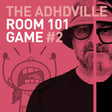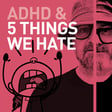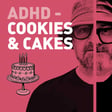
Episode 87 - The ADHD Conflict Crisis: How We Handle Ourselves (And Others)
In this episode of ADHDville, co-hosts Martin West and Paul Thompson dive into the often tricky world of ADHD and conflict. They explore how navigating conflict can sometimes be easier with others than with ourselves, and how ADHD amplifies certain situations in unexpected ways.
Paul and Martin reflect on the emotional toll of people-pleasing, overthinking, and the challenges that come with managing personal and external drama. They also discuss how their ADHD brains lead them to focus more on other people's problems than their own—and why establishing boundaries is crucial for preserving their energy and emotional well-being.
Join Martin and Paul as they chat through the ups and downs of conflict, all while enjoying a pint (or two) at the King’s Agitated Head Pub in ADHDville. Expect plenty of laughs, insights, and maybe even a few moments of self-reflection along the way.
Hit subscribe so you don’t miss the chaos – and drop a comment. 🔥
See our beautiful faces on YouTube
Put quill to paper and send us an email at: ADHDville@gmail.com
ADHD/Focus music from Martin (AKA Thinking Fish)
Theme music was written by Freddie Philips and played by Martin West. All other music by Martin West.
Please remember: This is an entertainment podcast about ADHD and does not substitute for individualized advice from qualified health professionals.



















